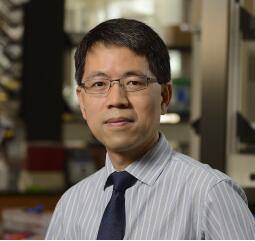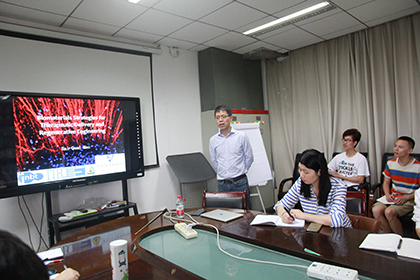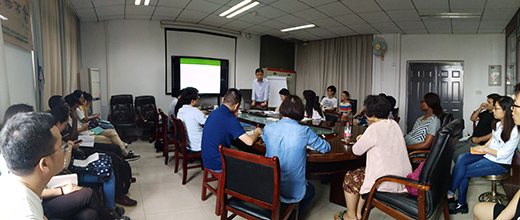2017年6月9号,在生命学院杨光教授的邀请下,毛海泉教授访问生命学院,并给生科院的学子们带来了题为“Polymeric Nanomaterials for Therapeutic Delivery and Regenerative Engineering“

Professor Hai-Quan Mao
Department of Materials Science and Engineering,
Department of Biomedical Engineering,
Institute of NanoBioTechnology, and
Translational Tissue Engineering Center,
Johns Hopkins University
New materials with tailored structural and functional characteristics can advance the ways medical treatments are delivered in combating diseases and repairing damaged tissues. This seminar discusses three examples that focus on (1) uncovering nanoparticle assembly approaches for exquisite control of biophysical properties of DNA nanoparticles that closely mimic that of natural viruses; (2) engineering nanofiber matrices to regulate cell morphology, migration, organization and tissue formation that facilitates soft tissue regeneration; and (3) nanofiber composite coating on orthopedic devices for local release of antibiotics to prevent biofilm-associated infection.
Biography: Dr. Mao received his Ph.D. in Polymer Chemistry from Wuhan University in China in 1993, and completed his postdoc training in Biomedical Engineering at Johns Hopkins University from 1995 to 1998. After a short tenure at Johns Hopkins in Singapore as a co-principal investigator from 1999 to 2003, he joined Johns Hopkins University as a faculty member in 2003. Dr. Mao currently is Professor in the Departments of Materials Science and Engineering and Biomedical Engineering at Johns Hopkins University, and holds a joint appointment in the Translational Tissue Engineering Center at Johns Hopkins School of Medicine. He also serves as the Associate Director of Johns Hopkins Institute for NanoBioTechnology. Dr. Mao's research focuses on engineering nanomaterials for regenerative medicine and therapy delivery applications. He has published 125 peer-reviewed articles and 21 issued US patents. His work has collected more than 10,000 citations with an h-index of 51. He was the recipient of the Young Investigator Award at National University of Singapore in 2002, the National Science Foundation Faculty CAREER Award in 2008 for his work on artificial matrix for stem cell engineering. He was elected Fellow of Royal Society of Chemistry in 2014, and member of the National Academy of Inventors in 2015. He currently also serves as an associate and handling editor for Biomaterials.


